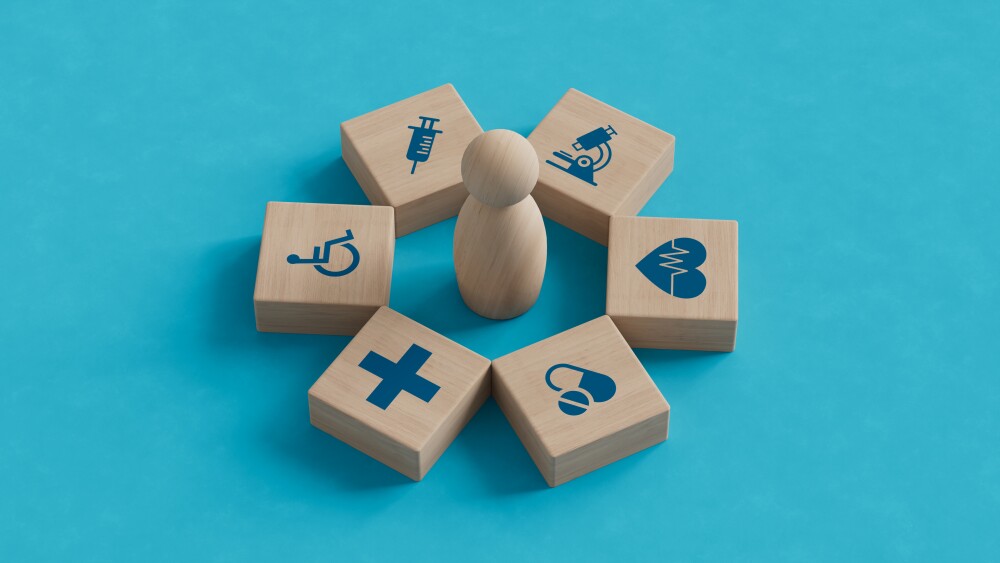The results from the Diamyd(TM) study demonstrate that the group of 35 recently diagnosed Type 1 diabetes patients that received Diamyd(TM) produced approximately twice as much meal stimulated insulin (as measured by C-peptide) 15 months after the first treatment as compared to the placebo group (p ~ 0.01). Preserving insulin-production is crucial for delaying the complications associated with long-term diabetes which cost billions of dollars to treat.
The ability of the beta cells to produce insulin in response to a meal is considered to be the key factor when it comes to assessing beta cell function. As insulin and C-peptide are produced in equal amounts and C-peptide is easier to measure, meal stimulated C-peptide levels are the most important parameter to follow in a Type 1 diabetes study where the aim is to preserve beta cell function. The C-peptide production in both groups experienced a decline but the decline was significantly inhibited in the Diamyd(TM) group. There were no significant differences in fasting C-peptide levels between the two groups. The treatment itself consisted of two injections of 20 mg Diamyd(TM), one at day one and one at day 30.
"This is a breakthrough," states Johnny Ludvigsson, M.D., Professor of Pediatrics at the University Hospital, Linkoping University, Sweden and the Principle Investigator on the study that was carried out at 8 hospitals in Sweden. "This clearly offers the potential to improve treatment of Type 1 diabetes. Endogenous insulin production is very important as it helps patients to better control their disease and reduce complications. The demonstrated effect is of clinical importance. The treatment is very easy to give, only two injections in total and it was very well received by patients, parents and doctors. In this trial, safety was not an issue."
"Although preliminary, the results of this trial constitute a major landmark in Diamyd Medical's history," says Anders Essen-Moller, CEO of Diamyd Medical. "Our goal is to bring novel therapies to the millions of patients who suffer from diabetes, a growing, worldwide health crisis. It is encouraging that the Diamyd(TM) drug now has shown statistically significant efficacy in both Type 1 diabetes and in the autoimmune form of Type 2 diabetes (LADA). The Company will now evaluate and execute its strategies on how to bring Diamyd(TM) to the market. This may include taking Diamyd(TM) to the market ourselves, aggressively seeking high-value international pharmaceutical partnerships for the co-development of Diamyd(TM), or a mixture of both."
"That Diamyd(TM) demonstrated the ability to preserve the function of pancreatic beta cells in Type 1 diabetes patients is a very encouraging trial result," stated Professor Mark Atkinson, Sebastian Family Eminent Scholar for Diabetes Research at the University of Florida, from which Diamyd Medical has licensed the rights to use GAD65 for treatment of diabetes. "Major studies such as the UK Prospective Diabetes Study and the Diabetes Control and Complications Trial indicate that maintenance of endogenous insulin secretion is associated with better metabolic control, as well as a lower risk for hypoglycemia and chronic complications. As Diamyd administration preserved metabolic function, this would suggest that significant short and long term benefits might be associated with the use of this drug as a treatment for Type 1 diabetes. Those benefits would not only include an improved quality of life for those with Type 1 diabetes but in addition, therapies that preserve beta cell function should provide a tremendous cost saving tool as a majority of the expenses associated with the disorder are, in fact, related to the treatment of complications."
"I'd like to congratulate Diamyd Medical regarding these positive results," says Professor Jerry Palmer, Director at Diabetes Endocrinology Research Center and Professor of Medicine at University of Washington. "With statistically significant better endogenous C-peptide production in the Diamyd(TM)-treated group over placebo, the drug seems clearly to be effective. This is an important breakthrough for autoantigen specific therapy. I look forward as the US Lead Investigator to contributing to the success of future clinical studies with the hope that Diamyd may help patients to achieve better control of their diabetes and to experience less long term complications."
"This is brilliant. These positive results are more striking than any of the other studies reported to date," says David Leslie, Professor of Diabetes and Autoimmunity at the Royal London and St. Bartholomew's School of Medicine, University of London.
"It's tremendously satisfying to see our work go from the lab to a clinical application with the potential to help so many people," said Daniel Kaufman, Ph.D., Professor, UCLA Department of Molecular and Medical Pharmacology, whose research team first developed and tested the vaccine in diabetes-prone mice.
"With these positive results in the Type 1 diabetes study, the likelihood that our ongoing LADA study will be successful has increased dramatically," says Professor Carl-David Agardh, Malmo University Hospital, Malmo, Sweden, Principal Investigator of the on-going 160-patient LADA study. "Type 1 diabetes is known to be a more aggressive disease than LADA in adult patients so we are optimistic that Diamyd(TM) will continue to show effectiveness also in this slower-developing form of diabetes," continues Professor Agardh.
Diamyd Medical's research program was preceded by studies from the early 1980s where Professors Johnny Ludvigsson, Ake Lernmark, and Steinun Baekkskov discovered the autoantigen that later proved to be GAD65, the active ingredient in the Diamyd(TM) therapeutic. The GAD genes were subsequently isolated by Dr. Allan Tobin's laboratory at UCLA. In 1996, Drs. Daniel Kaufman and Jide Tian (UCLA) demonstrated that GAD-specific autoantigen therapy could effectively prevent Type 1 diabetes-prone mice, providing a proof of principle for subsequent clinical trials.
The study results reported in this press release are preliminary and provisional. Conclusions may be up-dated when detailed analyses become more complete.
A scientific and in depth presentation of the study results will be presented on September 17, by Professor Johnny Ludvigsson at the European Diabetes Congress, EASD, in Copenhagen.
About Diamyd Medical
Diamyd Medical is a Life Science company focused on developing treatments for diabetes and its complications. The Company's furthest developed project is the GAD-based drug Diamyd(TM) against autoimmune diabetes. Diamyd(TM) is currently involved in ongoing clinical Phase II trials of both Type 1 and Type 2 diabetes patients.
GAD65 is a dominating autoantigen in autoimmune diabetes and is the active substance in Diamyd(TM). GAD65 is also an enzyme that converts the excitatory neurotransmittor glutamate to the inhibitory transmittor GABA. In this context GAD may have an important role not only in diabetes, but also in several CNS- related diseases. Diamyd Medical has an exclusive world-wide license from the UCLA in Los Angeles regarding the therapeutic use of the GAD65 gene. It also has been granted a license from the University of Florida for the use of GAD in therapeutic applications related to the treatment of Type 1 diabetes.
Diamyd Medical has outlicensed the use of the GAD65-gene to Neurologix Inc., New York, for treatment of Parkinson's disease and clinical Phase I studies are ongoing.
Other projects comprise drug development within gene therapy using the patent-protected NTTDS system (Nerve Targeted Drug Delivery System). The projects mainly make use of Enkephalin and GAD and are targeted for chronic pain, e.g. diabetes pain or cancer pain. All projects in this field are in preclinical phases.
Diamyd Medical has operations in Stockholm (Sweden) and in Pittsburgh (USA) and its shares are quoted at the Stockholmborsen O-List (OMX:DIAM B). The Diamyd share is also traded in the US through a Level 1 ADR program administered by the Bank of New York. (ticker symbol: DMYDY). Further information is to be found on the Company's website; www.diamyd.com.
Diamyd Medical AB (publ). Linnegatan 89 B, SE-115 23 Stockholm, Sweden. Tel: +46 8 661 00 26, fax: +46 8 661 63 68 or email: info@diamyd.com. VATno: SE556530-142001.
This Information may include statements concerning historical, present and forward-looking items and are to the "best of knowledge" of the management of Diamyd Medical and the actual status may differ materially from these statements. The Company assumes no obligation to update these statements to reflect actual results, changes in assumptions or changes in other factors affecting such statements. The Company's Press Releases, Quarterly Reports and Annual Reports ("Information") are translations from Swedish originals. No guarantees are made that these translations are free from errors.
Source: Diamyd Medical




